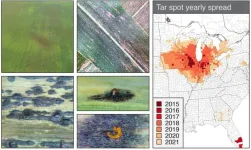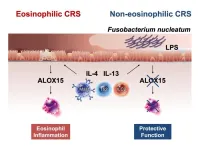A joint research team from South Korea and the United States has identified a new gene classification system for gastric cancer
A multicenter study of the MD Anderson, Korea University, Yonsei University, and other institutions - Establishing subtypes of gastric cancer classification to lay the foundation of personalized treatment
2023-11-06
(Press-News.org)
- A multicenter study of the MD Anderson, Korea University, Yonsei University, and other institutions
- Establishing subtypes of gastric cancer classification to lay the foundation of personalized treatment
Professor Sang Cheul Oh of the Division of Oncology/Hematology, Department of Internal Medicine, Korea University College of Medicine, Professor Sang‑Hee Kang of the Department of Surgery, Korea University’s Guro Hospital, and Professor Sun Young Yim of the Division of Gastroenterology and Hepatology, Department of Internal Medicine, Korea University College of Medicine announced a new genetic classification system for gastric cancer by a multicenter study with the University of Texas MD Anderson Cancer Center. This research laid the foundation of personalized treatment for gastric cancer.
Five institutions including the MD Anderson Cancer Center, Korea University College of Medicine, CHA University Medical Center, Kyung Hee University School of Medicine, Yonsei University College of Medicine, and Sungkyunkwan University School of Medicine; participated in this multicenter study. The research was led by Professor Ju‑Seog Lee of MD Anderson Cancer Center and Professor Sang Cheul Oh of Division of Oncology/Hematology participated. Professor Sang‑Hee Kang of Department of Surgery and Professor Sun Young Yim of Division of Gastroenterology and Hepatology participated led as the co-lead authors. Previously, the MD Anderson- Korea University research team also published the genetic classification system for liver cancer in Hepatology (impact factor 17.3), the top-tier journal in gastroenterology.
Gastric cancer’s characteristic is to have genetic and clinical diversity. The research team analyzed the gene classification system for 8 gastric cancers that was published in the past and derived the result of 6 Consensus Genomic Subtypes (CGSs). This system classified gastric cancers from CGS1 to CGS6 depending on different gene expression patterns.
Each subtype had different characteristics and CGS1 showed the worst prognostic features. It had very high stem cell properties and low genetic modification. However, the analysis confirmed that CGS1 responded well to immunotherapy and treatments targeting IGF1R could be effective. CGS2 was enriched in typical epithelial cell gene expression. CGS3 and CGS4 showed high cloning number variation and had low responses to immunotherapy. Nevertheless, CGS3 had a characteristic of HER2 gene activation and CGS4 had a characteristic of SALL4 gene activation. The team analyzed that treatments targeting those features would be effective. CGS5 had high mutation burden, which is a characteristic of microsatellite instability in tumors, and showed moderate response to immunotherapy. CGS6 was mostly positive for infectious mononucleosis (Epstein Barr) virus and had very high methylation levels. It showed a high response to immunotherapy.
The research team not only classified genetics of gastric cancer, but also estimated the potential response rates of standard and experimental treatments (chemoradiotherapy, immunotherapy, etc.) for each subtype through systematic analysis of genome and proteome data. As a result, the CGS3 subtype showed especially great benefits in anticancer radiotherapy due to its iron-dependent cell death due to high level lipid peroxidation. Research suggested potential treatment subjects for each subtype.
Professor Sun Young Yim of the Division of Gastroenterology and Hepatology, one of the lead authors of this study, said, “Although the mortality rate of gastric cancer is decreasing due to the implementation of new therapies, it still is one of the major causes of death for cancer patients. We believe that this research is going to lay the foundation for personalized gastric cancer treatments.”
Professor Sang‑Hee Kang of Department of Surgery said, “I am a surgeon, but I am interested in new therapy beyond surgery. I’ll continue my best to conquer cancer in the future through convergence research.”
This research was conducted with support from the National Research Foundation of Korea, and the results were recently published in “Molecular cancer (impact factor 37.3)” online, an international academic journal.
END
[Attachments] See images for this press release:

ELSE PRESS RELEASES FROM THIS DATE:
2023-11-06
ABSTRACTS: 1534, 777, 1328, 1526, 1330, 545
HOUSTON ― The University of Texas MD Anderson Cancer Center’s Research Highlights provides a glimpse into recent basic, translational, and clinical cancer research from MD Anderson experts.
This special edition features oral presentations from the Society for Immunotherapy of Cancer (SITC) 38th Annual Meeting focused on scientific advances and breakthroughs in cancer immunotherapy from MD Anderson-led studies. Highlights include fecal microbiome transplants ...
2023-11-06
LAWRENCE — The story of Ekgmowechashala, the final primate to inhabit North America before Homo sapiens or Clovis people, reads like a spaghetti western: A grizzled and mysterious loner, against the odds, ekes out an existence on the American Plains.
Except this tale unfolded about 30 million years ago, just after the Eocene-Oligocene transition during which North America saw great cooling and drying, making the continent less hospitable to warmth-loving primates.
Today, paleontologists from the University ...
2023-11-06
First reported in 2015, tar spot is an emerging disease on corn that has rapidly spread across the United States and Canada, causing tremendous yield loss estimated at $1.2 billion in 2021 alone. Tar spot gets its name from its iconic symptoms that resemble the splatter of “tar” on corn leaves, but these spots are in fact brown lesions formed by the fungal pathogen Phyllachora maydis. This destructive pathogen is challenging to research because it cannot survive outside its plant host; therefore, little information is currently known about the mechanisms that contribute to its disease cycle including spore formation, reproduction, and plant ...
2023-11-06
Open wounds, whether caused by accidents or from medical procedures like surgery, require proper management to speed up healing and prevent infections. While sutures and staples are common wound closure methods, they can cause secondary tissue injuries, potentially leaking fluids and gases and requiring anesthetics. Tissue adhesive glues are a more attractive alternative but often suffer from toxicity and weak adhesion.
Fortunately, tissue adhesive patches offer an innovative solution. They allow precise control of adhesion and mechanical properties through adjustable polymeric compositions. These patches can also deliver ...
2023-11-06
Like other countries in the world, Japan has witnessed a worrisome increase in the prevalence of chronic rhinosinusitis (CRS) over the last decade. An inflammatory disease that lasts at least 12 weeks, CRS can cause nasal congestion, nasal discharge, trouble breathing through the nose, facial pain, and even loss of sense of smell. Unfortunately, treating CRS is complex since the disease manifests in various forms. CRS can be categorized into eosinophilic (ECRS) or non-eosinophilic (non-ECRS) types. In ECRS, the nasal and sinus tissues exhibit an increased presence of eosinophils, a type of white blood cell that releases inflammatory ...
2023-11-06
Research Highlights:
American Indian and Alaska Native adults had significantly higher death rates from premature heart attacks compared to white, Black and Asian/Pacific Islander adults in the U.S., according to an analysis of more than 370,000 heart attack deaths from 1999-2020.
In addition, despite an overall decrease in heart attack death rates among American Indian and Alaska Native adults during the last two decades, heart attack-related deaths in American Indian and Alaska Native adult men younger than 55 years old and women younger than 65 years old did not decrease.
Embargoed until 4 a.m. CT/5 a.m. ...
2023-11-06
Research Highlights:
A child’s race, ethnicity and/or the neighborhood where they live may have an impact on their survival and recovery after a cardiac arrest.
Black children were more than four times more likely to experience a cardiac arrest compared to white or Hispanic children.
Children from neighborhoods with the highest socioeconomic status had the best odds of surviving and functioning well after a cardiac arrest.
Embargoed until 4 a.m. CT/5 a.m. ET, Monday, Nov. 6, 2023
DALLAS, Nov. 6, 2023 — Children’s ...
2023-11-06
Research Highlights:
As more people across the U.S. use marijuana for medical and recreational reasons, two new studies suggest its regular intake may damage heart and brain health.
In one study, daily use of marijuana raised the risk of developing heart failure by about one-third, even after considering other factors, compared to people who reported never using marijuana.
In a second study, older people with any combination of Type 2 diabetes, high blood pressure and high cholesterol who used marijuana, ...
2023-11-06
Research Highlights:
In a small study of adults living in rural America, those who identified as transgender were more likely to have cardiovascular disease risk factors, including tobacco use, obesity, high blood pressure, Type 2 diabetes or insulin resistance, high cholesterol and/or alcohol use.
Study participants with the highest odds of having cardiovascular disease risk factors were transgender males.
The findings highlight the need for interventions focused on reducing health disparities among the transgender population, researchers said.
Embargoed until 4 a.m. CT/5 a.m. ET, Monday, Nov. 6, 2023
DALLAS, Nov. 6, 2023 — Transgender ...
2023-11-06
Research Highlights:
An experimental, leadless pacemaker housing is able to partially recharge the device’s battery by generating electrical energy from heartbeats.
The device generated about 10% of the energy needed to stimulate another heartbeat.
The preliminary findings show that leadless pacemaker batteries may be recharged by converting the heart’s mechanical/pressure energy into electrical energy, however, more research is needed.
Embargoed until 4 a.m. CT/5 a.m. ET, Monday, Nov. 6, 2023
DALLAS, ...
LAST 30 PRESS RELEASES:
[Press-News.org] A joint research team from South Korea and the United States has identified a new gene classification system for gastric cancer
A multicenter study of the MD Anderson, Korea University, Yonsei University, and other institutions - Establishing subtypes of gastric cancer classification to lay the foundation of personalized treatment




